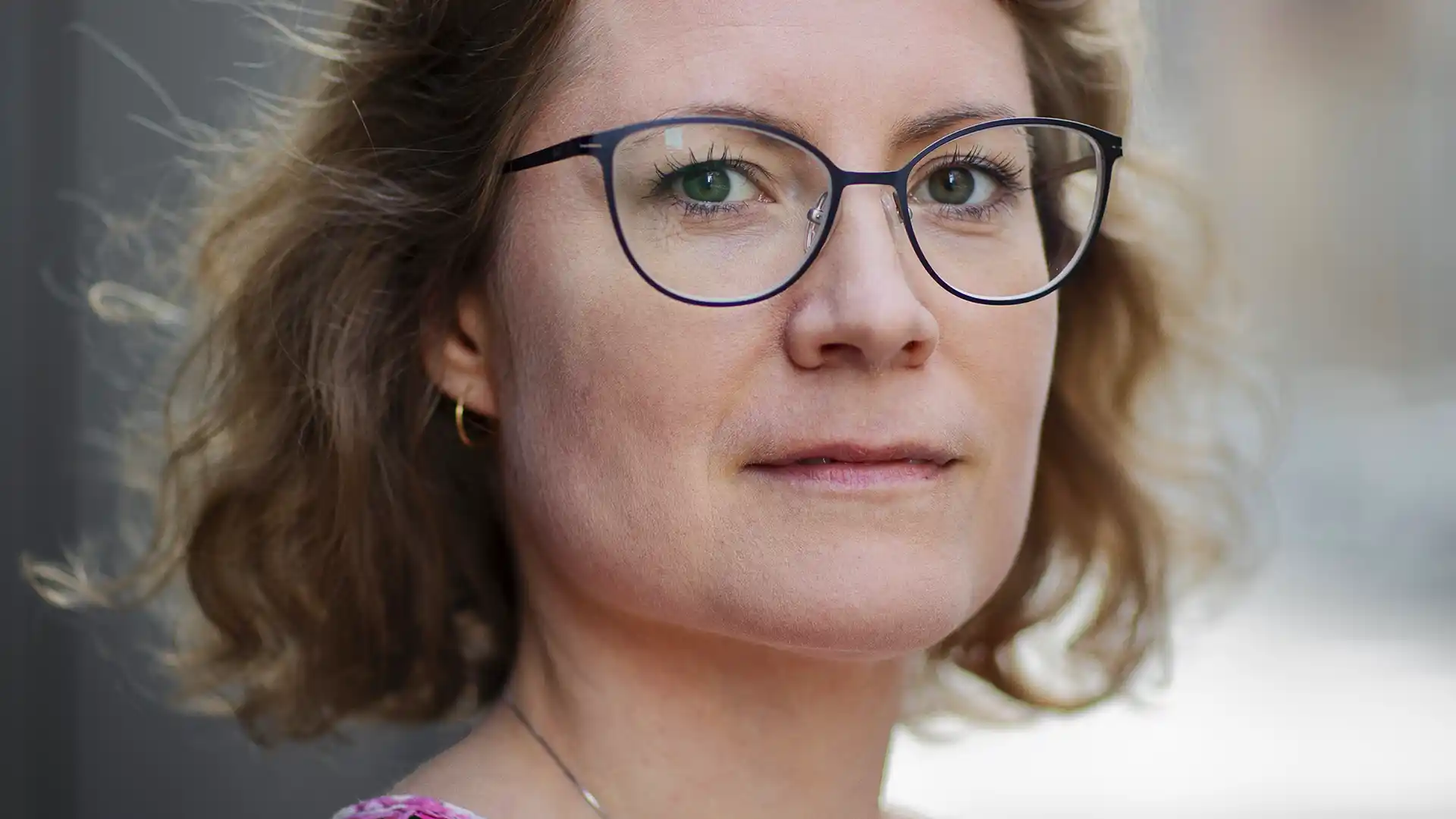“If I don’t speak up then who will?”
Isabella Olsén is a successful leadership coach in Schibsted, with an autism diagnosis. Despite some concerns, she decided to share her experience to open up the conversation about neurodiversity.
By Ann Axelsson
Isabella Olsén think it´s important that we don´t let the conversation about diversity get too fluffy, we should instead go a bit deeper.

“If I don’t speak up then who will?”
Isabella Olsén is a successful leadership coach in Schibsted, with an autism diagnosis. Despite some concerns, she decided to share her experience to open up the conversation about neurodiversity.
By Ann Axelsson
“Do you know that you are autistic?” That was the first thing the person evaluating an assessment she had just taken said. Isabella Olsén did not know, and that was the beginning of a journey of deep self-discovery.
Isabella is working as a leadership coach at Schibsted. She has many years of experience as a successful tech leader and she completed advanced education without struggle.
“People who meet me often can’t tell that I am autistic, and some of the traits that come with my autism are also the traits that helped me succeed.”
She explains that she can focus very intensely on things she’s interested in, she is very logical, and she can solve complex problems. “When I’m interested in a subject, I don’t read one book – I read ten.”
Special talents for being a coach
Some of her special talents also make her a really good coach. “I am perceptive, have an excellent memory and don’t particularly enjoy small talk. I quickly dive into real conversations, and I seem to make the people I work with feel comfortable sharing and exploring.” At this point, she has coached more than 100 leaders in Schibsted.
But she has always known she is different. Some things that are easy for other people to do are hard for her and make her feel exhausted. One of them is social contact.
“Unstructured social situations take a lot of energy from me. I don’t have natural social intuition, at least not according to the neurotypical standards, so I have to think my way through it. And I mask the things I know aren’t socially acceptable.”
So, Isabella came to a point in which her life wasn’t working out, and that’s when she got her diagnosis.
“It took some time to accept, mainly because I don’t fit the stereotype, but in the end, it helped me to understand why I feel different and why some things are so hard for me.”
At the same time, she sometimes feels that she doesn’t fit into the autism community either.
“Autism is a broad concept, and I’m not very far out on the scale. So, I often hear that I’m not the best person to talk about it.”
But at one point she decided that she wanted to do just that. In Schibsted many of us saw her in a Town Hall meeting where she explained the importance of talking about neurodiversity and making use of everyone’s special skills and talents. It wasn’t an easy decision to tell that story in front of all her colleagues.
“I don’t want to be identified by my diagnosis only and I was afraid that people wouldn’t want to have me as a coach anymore. Many who also have a diagnosis said they would never share openly like that. But I have only gotten positive feedback after that meeting.”
She will keep speaking up
Daring to speak up is also part of who she is. And why she plans to continue doing just that.
“I think we should speak more openly about neurodiversity. It’s really important to have different types of people in a workplace. The culture will benefit, and the company will do better.
“And if I don’t speak up then who will? As a coach I expect people to share, be honest and open. So, I should too. I believe in living what you teach and being who you want to be.”
She also believes that sometimes when we speak about diversity, it gets a bit too fluffy. It’s easy to use nice words, but what do they really mean? She thinks the conversation should go a bit deeper. And acknowledge that with these topics come some hard questions.
“I wish we could have a more open conversation, both about what works and what doesn’t in a workplace, and about how we are different and how some of us might need some adaptations to be at our best. Today it’s hard to speak about differences without offending. It’s easy to do and say the wrong thing.”
Isabella is obviously starting that conversation. And it’s a conversation we need to have – today 70–80% of people on the autism spectrum are unemployed.
“We need to create a culture in which we can talk about these topics, equip employees with knowledge, and define what actions we can take.”
Isabella is where she wants to be, working as a leadership coach was her goal and she gets to use all her skills, competencies and experience. And she’s living what she teaches – speaking up.
Still, she also wants to remind us all about one thing:
“I am autistic – but first and foremost I am so many other things. Just like everyone, with or without a diagnosis.”
[Sassy_Social_Share]

Ann Axelsson
Senior Product Manager, Strategic Communication, Schibsted
Years in Schibsted: 25
My favourite song the last decade: Paper Doll – John Mayer